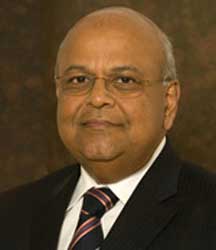
Top stories






More news















Despite dismissing allegations of political meddling as "nonsensical" and accusing the Sunday Times of "clearly creating mischief", Gordhan admitted that several "revisions" were made to his original belt-tightening rules that could severely weaken their impact.
In October, Gordhan announced a series of widely praised cost-cutting measures in his mini-budget speech, including that "no public funds [were] to be used for purchase of alcohol".
Before his address, Gordhan said savings on liquor, travel, housing, consultants, credit cards and advertising could run into billions.
But his department quietly published an instruction note from the Treasury last week that provided for a number of "exceptions" to the rule.
It takes effect on 1 January.
It turns out taxpayers will be paying the liquor bills after all - at state banquets, parties attended by "foreign dignitaries" and any function that promotes South Africa and any of its goods and services.
Gordhan also back-pedalled on promises to end the use of government credit cards after earlier announcing that "no new credit cards [were] to be used and the existing ones [were] to be cancelled immediately".
This was faithfully reflected in a draft notice gazetted for public comment on 6 November, which still allows petrol cards to be used.
However, just more than a week later - on November 15 - a final, substantially watered-down notice was published that allows government departments to use credit cards for travel and accommodation expenses, online transactions and petty cash.
A new clause allows the Treasury to exempt departments and state-owned entities from the credit card ban if special circumstances justify it.
Two well-placed sources - one in the government and the other in the private sector - said Gordhan had caved in to political pressure. Both spoke on condition of anonymity.
Gordhan said claims of political interference reflected a "lack of understanding of government processes, which seems to lead to unfounded assertions".
His spokesman, Jabulani Sikhakhane, insisted that "no political pressure was brought to bear on the minister or the national Treasury" to water down his austerity measures.
Source: Sunday Times via I-Net Bridge

For more than two decades, I-Net Bridge has been one of South Africa’s preferred electronic providers of innovative solutions, data of the highest calibre, reliable platforms and excellent supporting systems. Our products include workstations, web applications and data feeds packaged with in-depth news and powerful analytical tools empowering clients to make meaningful decisions.
We pride ourselves on our wide variety of in-house skills, encompassing multiple platforms and applications. These skills enable us to not only function as a first class facility, but also design, implement and support all our client needs at a level that confirms I-Net Bridge a leader in its field.
Go to: http://www.inet.co.za